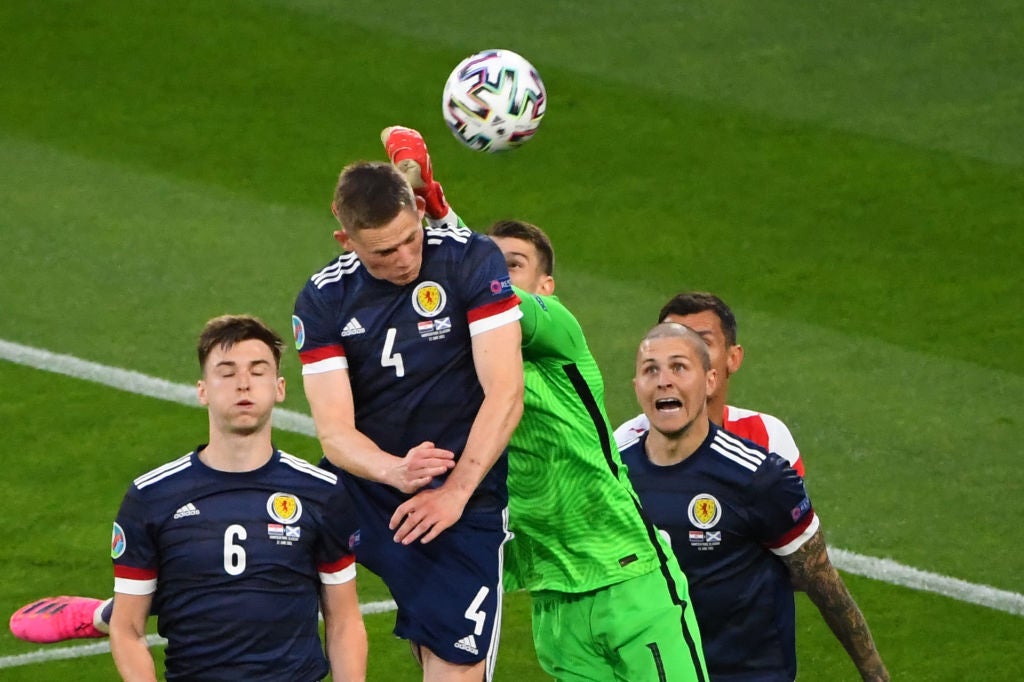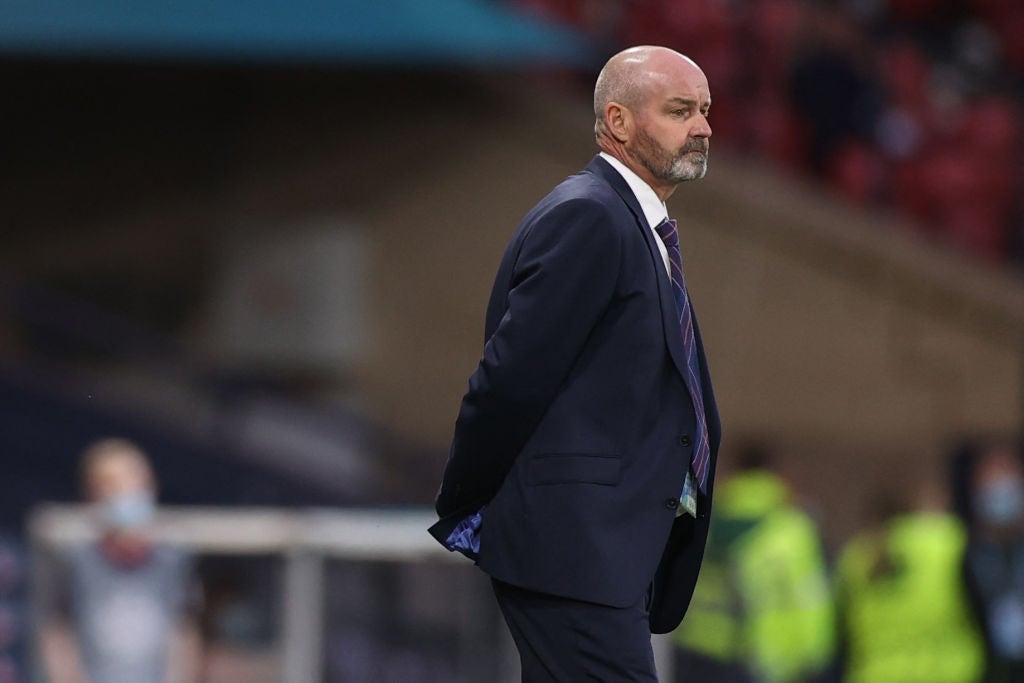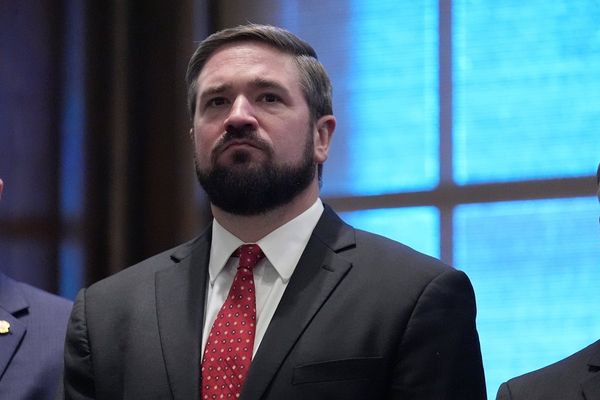
They were always going to cheer at the end. As Croatia closed out a 3-1 win to confirm their continuation in this European Championship at Scotland’s expense, the Hampden Park faithful sung them through to the final whistle and a dispiriting exit.
Fans reaffirmed their love for Scotland. Their appreciation of those who guided them through the first tournament since 1998, and the first got a few generations who made up the attendance. Some had headed for the exits earlier, others had their heads in their phones, texting and/or tweeting their dismay. But as the clock ticked up to full time and down on Scotland’s Euro2020 adventure, gratitude was the derivative emotion of sheer disappointment.
Could they have done more? Definitely. Starting the second-half at 1-1, having spooked Croatia with their guttural enthusiasm, they could have shaped up smarter. Though even that probably would not have had enough to outwit seasoned magician Luka Modric.
Could they have been better? No question. The match against Czech Republic was the best chance of three points for Steve Clarke’s side given the more favourable man-to-man match-up compared to Croatia and England.
Should they have had more to show for this tournament? On balance, probably not. One goal scored – Callum McGregor’s equaliser on Tuesday was Scotland’s first in a tournament since 1998 – and five conceded (all in their two matches at home) spoke of the front- and back-end issues. Causes for concern that, for all Scotland’s improvement, remain in 2021.
None of this is new to those on the field or in the stands. But for those final moments, they sang to acknowledge things are better than they have been for a while. The disappointment may be familiar. The stage, though, was something new.
“That shows we were all in it together,” said a disconsolate Kieran Tierney in his post-match interview. “We’ll all learn, for sure. I think tonight is a big learning curve for us all.”
That learning, though, is not for now. The aftermath of such professional trauma rarely yields solutions.
“At the moment it’s just disappointment,” said Clarke when fielding the “what happens now” question usually proposed to a defeated coach. “You have to give me tonight to get over that, and then a few days.”
That’s not to say that we and those who stayed to cheer cannot throw forward on Clarke’s behalf. Or even some within his squad.
Nottingham Forest defender Scott McKenna spoke of this tournament as an important moment in the life-cycle of these players. “Our big players are still at a great age,” he observed.
Naturally, the onus falls on the younger members of the squad to carry prospective hopes. In Billy Gilmour (20), Nathan Patterson (19) and David Turnbull (21), there are encouraging signs in the longer term.
But the shorter term carries just as much importance. The World Cup is next year, with Scotland second in their Group F qualifying group. Another European Championship is just three years away.
Only one outfield player, defender Declan Gallagher, is 30 or above. The first XI has another couple of tournament cycles within them: Kieran Tierney, Scott McTominay and Che Adams are all 24; John McGinn is 26; Andrew Robertson is 27 and Callum McGregor 28.

“As much as our young ones are exciting, it’s good that we’ve got the more senior ones about,” reiterated McKenna.
That they are positionally aware and technically proficient defenders and midfielders is in keeping with Clarke’s general focus on structure. And the promising nuggets buried deep throughout the two defeats and one draw in Group D suggest extending remits – ergo, attacking license – can happen authentically.
It was part of a broader sentiment relayed by Clarke in the dressing room after their exit. With heads down, the head coach implored the vast majority in the room who will be around for the next three to two to three years to use this regret as fuel. To ensure this is the start of Scotland becoming regulars at tournaments, not another end.
For those who slogged in vain against Croatia, the clearest lesson for development was the way their opponents approached various scenarios. They hung in there after Scotland started swinging from the first bell, chose their moments to kick up a gear without over-exerting themselves and, quite simply, took their chances.
“Third game” experience is how Clarke put it when assessing the display from 2018’s World Cup runners-up. “There’s lots to learn for everybody, head coach included.

“We have to get better at everything. We have improved a lot over the two years I’ve been head coach. What we have to do is keep improving, get better and better.”
Back in Glasgow’s city centre, fans congregated in George Square. Not in as great a numbers as they did on Friday after the 0-0 draw with England, and only a fraction of what would’ve been had this result gone the other way. Yet the intention to squeeze the last bit of juice from this final day of the last couple of weeks was clear. There was no need for debriefs just yet.
Clarke acknowledges disappointment will have a monopoly on his mood for the next couple of days. “We’ll look and see what we can do better in the future,” he said when assessing what comes next after the sorrow, before summoning the defiance of what will come. “And we’ll make sure it’s not 23 years until we go to the next tournament.”







